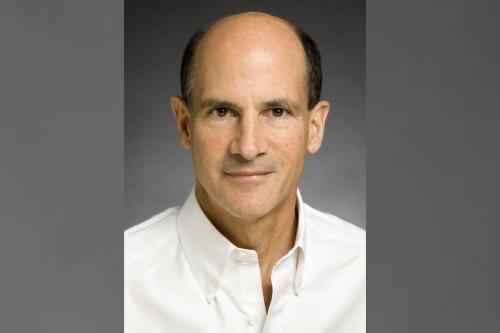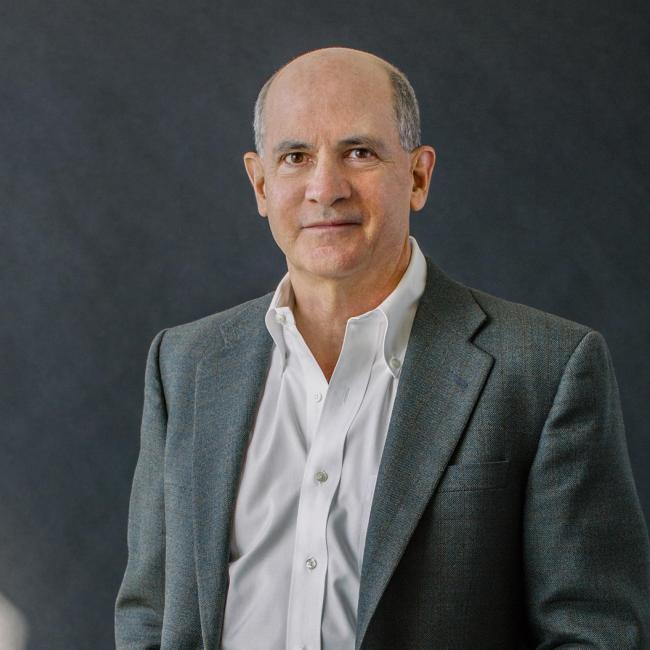
Dr. Thomas Rando named director of UCLA Broad Stem Cell Research Center
Dr. Thomas Rando, a renowned neurologist and stem cell biologist, has been named director of the Eli and Edythe Broad Center of Regenerative Medicine and Stem Cell Research at UCLA.
Rando, who was chosen after an international search, is currently a professor of neurology and neurological sciences at the medical school at Stanford University, where he also serves as director of the Glenn Center for the Biology of Aging and deputy director of the Stanford Center on Longevity. In addition, he is chief of neurology at the Veterans Affairs Palo Alto Health Care System.
His appointment is effective Oct. 1.
“As a trailblazing clinical investigator and inspired scientific leader, Tom is well positioned to lead the Broad Stem Cell Research Center to even greater successes,” said UCLA Chancellor Gene Block. “His accomplishments as a director of numerous multidisciplinary and collaborative scientific programs, both at Stanford and the VA, are a testament to his abilities as a champion for innovative research, a mentor and an administrator.”
Rando will succeed Dr. S. Thomas Carmichael, who has served as interim director of the center since 2020, and Dr. Owen Witte, who served as founding director from 2005 to 2020.
With a membership of nearly 250 researchers and clinicians representing more than 55 UCLA departments, schools and institutes, the Broad Stem Cell Research Center is committed to revolutionizing the treatment of disease through personalized cellular therapies and regenerative medicine. The center is well regarded for its dynamic and highly collaborative research program, its success in supporting cutting-edge research and translating discoveries into life-saving therapies, and its dedication to training the next generation of stem cell investigators.
“In its 16 years, the Broad Stem Cell Research Center has more than earned its place at the forefront of the regenerative medicine field and helped to position UCLA as the model of an intellectually integrated campus,” said Roger Wakimoto, UCLA’s vice chancellor for research and creative activities. “Throughout Owen Witte’s tenure as director, the center invested aggressively in innovative research, infrastructure, training and education, recruited world-class scientists and produced discoveries that are improving human health. I would like to thank both Owen and Tom Carmichael for their vision and dedication.”
As director, Rando will seek to build on the center’s strengths and promote a culture of scientific excellence, academic integrity and interdisciplinary collaboration. He will also work to bring about new partnerships with the larger scientific community — including other institutions and private companies — to address the most urgent challenges of medicine.
“I see the opportunity to lead a world-class center like this one as a chance to contribute to the field of regenerative medicine to a degree that far surpasses what I could accomplish as an individual investigator,” Rando said. “It is an honor to join the center’s remarkable community of scientists, clinicians and trainees to advance our shared mission of revolutionizing the treatment of disease.”
Witte, who will continue conducting research at UCLA as a University Professor, welcomed Rando to the new role.
“It was both a pleasure and a privilege to serve as the director of the Broad Stem Cell Research Center for 15 years,” he said. “I have been awed by the scientific achievements of our members and by the dedicated community they have created. I’m confident that Tom Rando will bring a fresh perspective and unique skill set that will elevate the center to new heights.”
Rando received a bachelor’s degree in biochemistry, a doctorate in cell and developmental biology and a medical degree from Harvard University. He completed his internship at Massachusetts General Hospital, his residency in neurology at UC San Francisco and a research fellowship in molecular pharmacology at Stanford.
Rando began his career researching the development and progression of muscular dystrophies. This led to an interest in regenerative medicine, particularly somatic cell function, which has been the central focus of his laboratory for the past 20 years. He has published extensively and founded biotechnology startups in his major areas of research, which include stem cell aging and epigenetic rejuvenation, tissue engineering, muscle stem cell biology and muscular dystrophies.
Rando has also served as director of the Palo Alto VA’s Geriatric Research, Education and Clinical Center and its Rehabilitation Research and Development Center of Excellence. At Stanford, he has championed diversity, equity and inclusion through outreach programs that include the Postdoctoral Recruitment Initiative in Science and Medicine the Hispanic Center of Excellence and the Stanford Medical Youth Science Program.
Rando is an elected member of the National Academy of Medicine, the American Academy of Arts and Sciences, and the American Neurological Association. Among other honors, he has received a Director’s Pioneer Award and a Transformative Research Award from the National Institutes of Health, a Paul Beeson Physician Faculty Scholar Award in Aging Research, a Breakthroughs in Gerontology Award from the American Federation for Aging Research and a Senior Scholar Award from the Ellison Medical Foundation.
